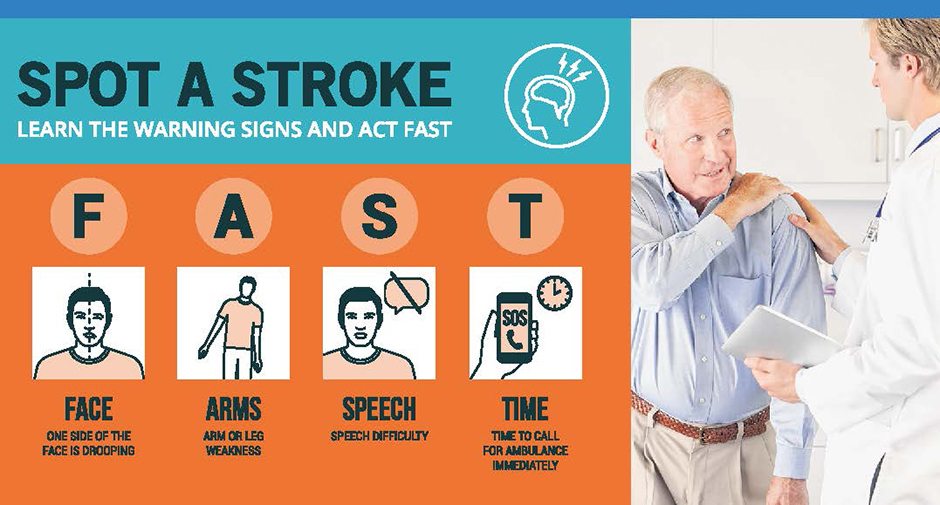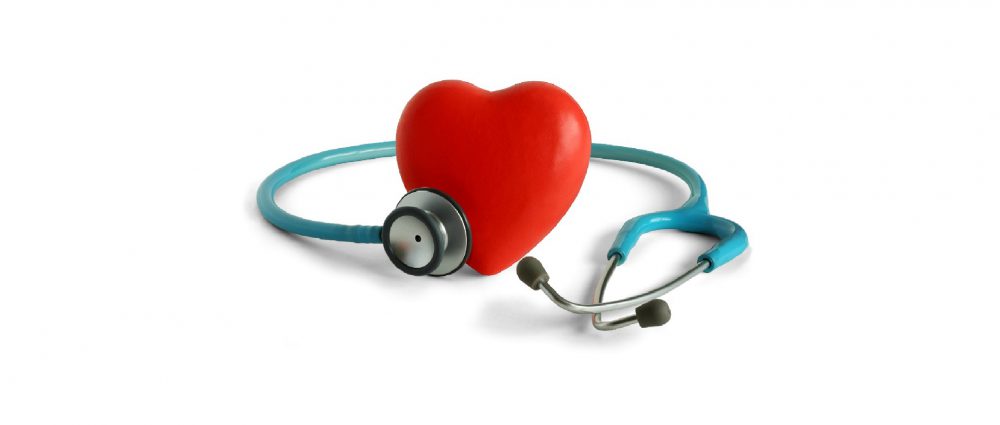
[This piece was written by John D. Filippone, MD, FACC, Albany Associates in Cardiology, St. Peter’s Health Partners Medical Associates.]
According to the Centers for Disease Control and Prevention, stroke is the fourth leading cause of death in the United States, with one American dying from a stroke every four minutes.
Stroke is also the number one cause of disability in the US, with many survivors requiring assistance with daily living. At least 75 percent of stroke patients also have cardiovascular disease and are at risk of a heart attack as well as a stroke.
Strokes occur either when a blood clot or sudden bleeding cuts off the flow of oxygen to part of the brain. The sooner you get to an Emergency Department, the more treatment options are available. That is why, when someone suffers a stroke, you must act FAST!
Because stroke victims are losing brain cells, every second is vital in diagnosing the problem and getting help. Remember the FAST acronym to spot a stroke:
F is for Facial numbness or weakness
A is for Arm numbness or weakness
S is for slurred Speech, or difficulty speaking or understanding
T is for Time; it’s time to call 911
You are at higher risk for stroke as you age; if you have a family or personal history of strokes; or if you are African-American. The good news is, thanks to advances in medicine and surgery, there are now an estimated seven million stroke survivors in America.
After a stroke occurs, the greatest danger is recurrence, and nearly one third of stroke survivors have at least one more stroke. You can reduce your chances of having a stroke by: not smoking; controlling your blood pressure, cholesterol and diet; managing diabetes; limiting alcohol; exercising regularly; and having your family doctor regularly evaluate your stroke risk.
St. Peter’s Health Partners offers comprehensive care for persons who have had a stroke, from rapid diagnosis and Emergency Department treatment through Acute Rehabilitation services.
St. Mary’s and Albany Memorial hospitals have robust emergency rooms to manage patients with chest pain, with both recently receiving the American Heart Association/American Stroke Association’s Get With The Guidelines (GWTG)-Stroke Gold Plus Quality Achievement Award. Both St. Mary’s and Albany Memorial are referring centers to the high-tech cardiac catheterization labs at St. Peter’s and Samaritan hospitals.
St. Peter’s Health Partners has four accredited Chest Pain Centers – Samaritan and St. Mary’s hospitals in Troy, and Albany Memorial and St. Peter’s hospitals in Albany – where patients receive expert diagnosis, management and treatment of chest pain, heart attack and other cardiovascular emergencies, like stroke.





